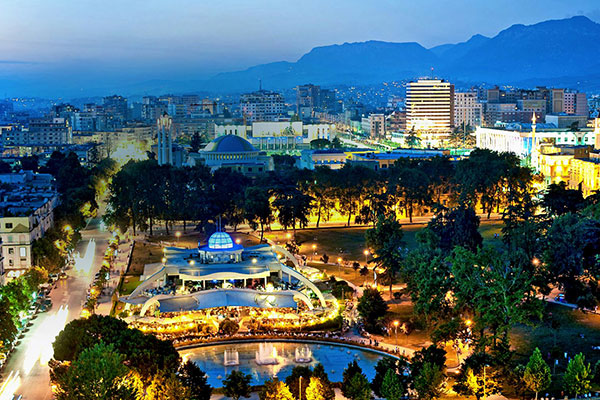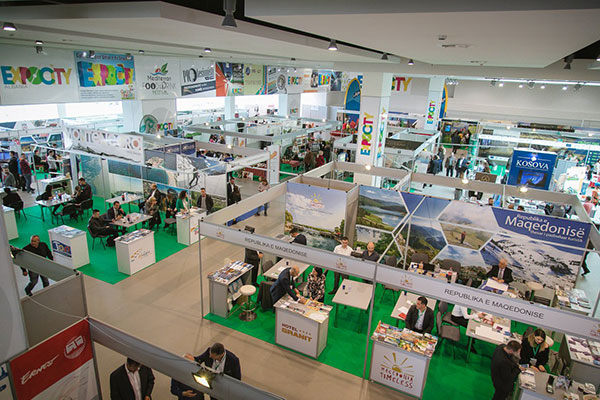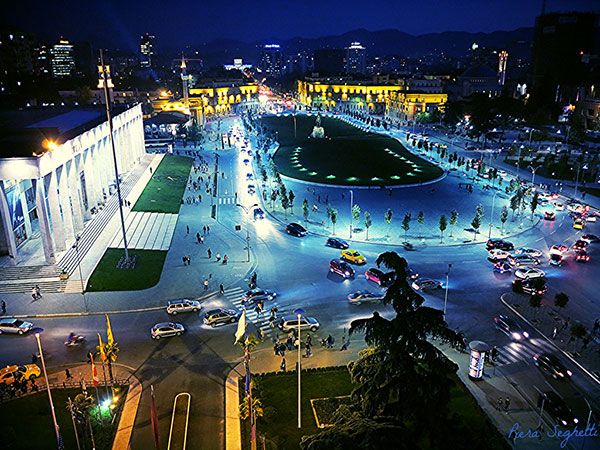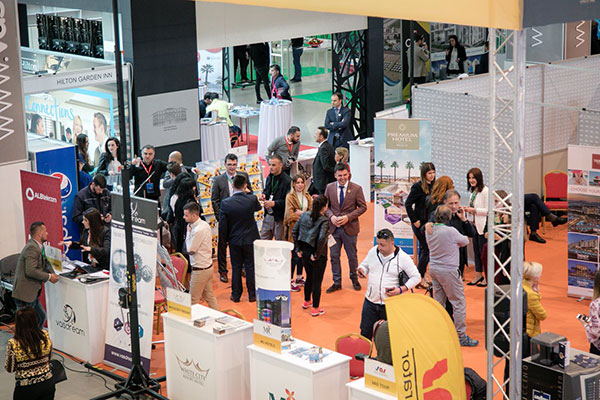Aida Lutaj, CEO, Expocity Albania speaks to Sarah-Claire Picton about the Balkans’ trade show sector, looking at how the industry has changed and what key industry innovation and projects are fuelling this change.
I took over the role at Expocity Albania, last year (May 2017), with the goal to scale the brand and grow it into a number one regional player. We are based out of Tirana, Albania, and are looking at growing further with a regional focus – geographically in Albania, Kosovo, Montenegro, and Macedonia.

After 14 years in NYC, and with an extended background in finance, turnaround, PE and strategy, and passionate about change and growth, I look forward to transform this industry and position our venue and organising business to be a leader in the region.
We are the only UFI certified venue in Albania, and we are positioned very well to be a number one player in the region. Once you capture this market, it is easier to attract more international businesses from beyond the region who are interested to further explore the secondary or frontier emerging markets for investment opportunities, lower labour cost, and/or collaborations with local and regional businesses.
The exhibition industry is very dynamic and essential to further economic development in the emerging markets. It is important to emphasize the contrast between developed economies and emerging markets, and we can further categorise the emerging markets (in primary emerging market, and secondary or frontier emerging markets).
When we talk about visitors’ behaviour and communication to the visitors, it is important to know the demographics and cultural background of our target audience. It is also critical to tie this to the “type or market” we fall in, as this will change depending on the markets that are covered.
The Western Balkans, compared to other emerging markets, lacks in proper tradition in exhibitions – this is a sector that is very fragmented and hasn’t been formed properly. We aim to transform this sector, even though it sometimes feels like going against the current.

We are private and the exhibitions industry works as an ecosystem. This means that in order to grow the industry and reap the benefits at a macro level – and this benefits everyone not just the private sector – it is important to get the support of the respective institutions and government.
Over the last year (and this year), we have launched events in main sectors, with a high potential for growth and further investments, such as renewable energy, tourism, agro-tech and construction. We have included and invited the respective institutions in our events, however there needs to be more support from the government.
Furthermore, random trade fairs launched in public spaces without proper market analysis, and proper research and collaboration, need to stop as they ruin the sector.
There is a major need to further grow this industry. Exhibitions stimulate economic development, advance national and regional industries, and increase opportunities for foreign investments.
Most businesses in Albania and the rest of Balkans are SMEs.
Not all have the opportunity to attend worldwide exhibitions and benefit from this participation, hence the need to grow these venues locally and regionally and attract all interested international players. By creating this platform locally, we further help develop SMEs, adding value to their businesses.
The mindset of the visitors needs to change further regarding the values of B2B. We see a growing need for B2B exhibitions in major sectors where further investment is expected, and new partnerships are needed, such as renewable energy, agrobusiness, and tourism.


Despite rapidly growing technologies and digital formats for upcoming exhibitions, the importance of face-to-face conversations is not going to change.
Furthermore, with more technological development, it is essential to have more in-person encounters.
Exhibitions are not only a marketing tool but also offer an experience for a visitor, while providing information on know-hows, latest innovations and developments in specific sectors, and offering visitors an opportunity to collect data on specific products/businesses of their interest. In the emerging markets, there is more of need for this, which hasn’t been tapped to its full potential, also for businesses to look at exhibitions as another marketing channel.
Over the last year, I have witnessed scepticism, growth and change – from the business side as well as visitor behaviour. Despite the smaller market size, I find the Balkans very interesting and exciting as a terrain. The emerging markets will bring growth in the upcoming years for the exhibitions sector, even on this side.
With increased regional trade flow and, growing domestic demand, political stability and support from the government, this sector can undergo a major transformation and grow further.
Personally, I would like to see more interest from PE investors on this side and more collaboration with international organisers, as they can truly take the sector to the next level, in addition to local investor support and government support.
Read Aida Luta's contribution in the upcoming edition of Exhibition World (Issue 3 | 2018), coming soon!






